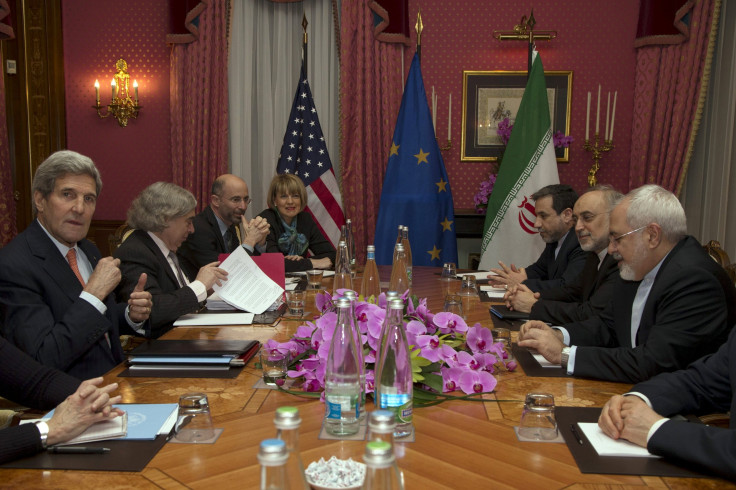Draft Nuclear Agreement To Cut Iran's Centrifuges By 40%: Report

Iran and the U. S. are working on a tentative deal that commits the Middle Eastern nation to cut its centrifuges by as much as 40 percent, significantly reducing its ability to enrich uranium, the Associated Press (AP) reported, citing unnamed officials. However, a senior European negotiator speaking to Reuters on the condition of anonymity, said that the two sides were not close to any such agreement.
“We are pretty far away. There are a lot of issues that still need to be resolved. The Iranians must make substantial concessions,” the European negotiator told Reuters.
AP reported that, under the tentative deal, Iran and the U.S. are close to zeroing in on a cap of 6,000 centrifuges. Iran is currently believed to have less than 10,000 active centrifuges, and can, according to some estimates, amass enough enriched uranium to make a bomb in two or three months. However, the Iranian government has consistently denied accusations that it wants to manufacture a nuclear weapon, insisting that its nuclear program is solely for peaceful purposes.
U.S. officials rejected reports of a draft agreement, instead stating that there are “many pieces of papers” being circulated during the ongoing negotiations. “The reports are inaccurate. There’s no draft document being circulated. The fundamental framework issues are still under comprehensive discussion,” Jen Psaki, the U.S. state department spokesperson, said during a press briefing on Friday.
A senior Iranian negotiator also rejected the figures mentioned in the report as “just imaginations,” according to a report by Iran’s state-run PressTV.
The latest developments came on the fifth day of ongoing negotiations between the P5+1 -- the U.S., U.K., Russia, France, China and Germany -- and Iran, in Switzerland. The talks, are also being attended by U.S. Secretary of State John Kerry.
“The most important thing for the U.S. and the rest of the P5+1 is, that Iran does not acquire a nuclear bomb. It could do that through its enrichment at Natanz or Fordou or the production of plutonium in Arak, or any other secret way … what we want is, to close all the ways that Iran can obtain a nuclear bomb,” Alan Erye, a U.S. state department spokesperson, reportedly said.
Meanwhile, U.S. President Barack Obama, in a video message released Thursday on the occasion of "Nawroz" -- the Persian New Year -- said that Iran and the U.S. have the “best opportunity in decades” to pursue a different future.
“This moment may not come again soon,” Obama said. “I believe that our nations have a historic opportunity to resolve this issue peacefully -- an opportunity we should not miss.”
© Copyright IBTimes 2025. All rights reserved.






















